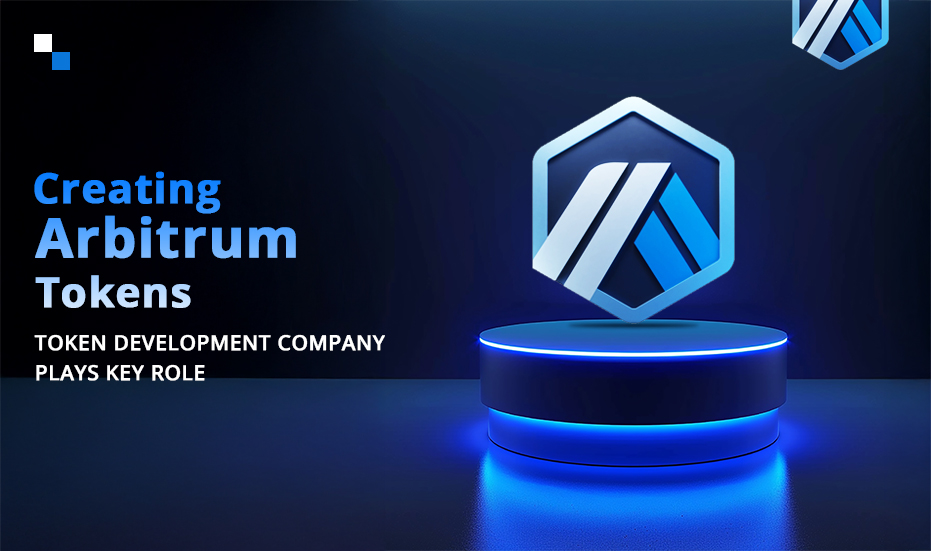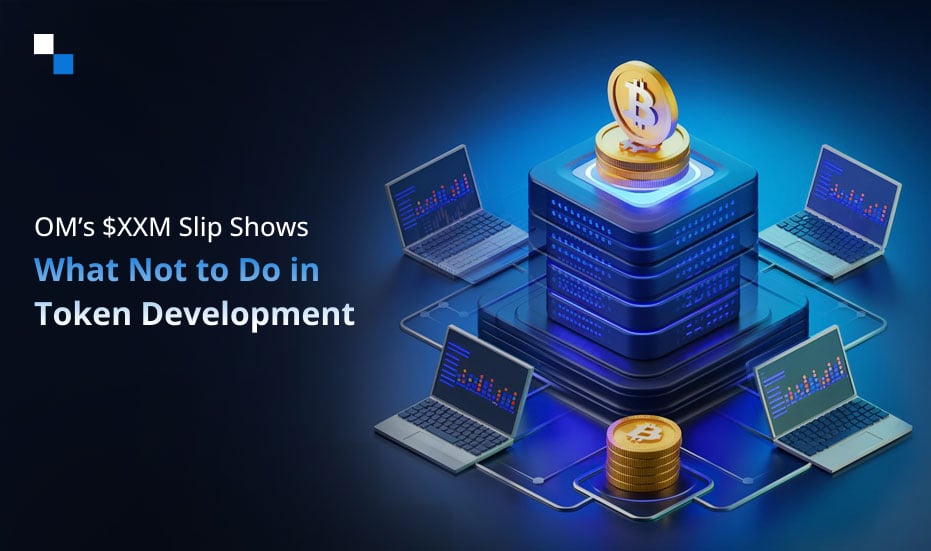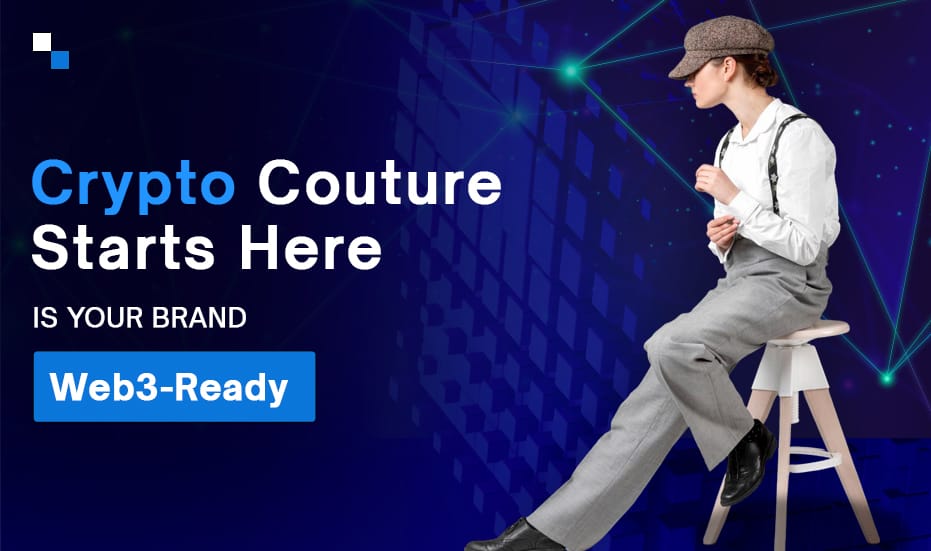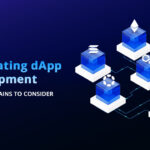
Top Blockchain Platforms for dApp Development in 2025
December 20, 2024
Do Indie Web3 Games Hold a Winning Edge Over AAA Games?
December 20, 2024Creating a token on Arbitrum, a Layer 2 scaling solution of Ethereum, has some really important benefits, such as lower fees for transactions and faster processing times, improved scalability. Arbitrum works with optimistic rollups; this method is efficient at scaling decentralized applications in a secure manner because it works on Ethereum. Generating a token on Arbitrum may unlock many new opportunities in DeFi and NFTs and more. Seems tough? Well, you can leverage crypto token development services to navigate the complexities of generating a token successfully.
Let’s continue the discussion!
Understanding Arbitrum: The Ideal Platform for Token Development
Arbitrum represents a cutting-edge Layer 2 scaling solution built on Ethereum. A token development company can leverage the unique advantages of using this particular blockchain for producing a token.
Here are some of them:
- Significantly reduced gas fees
- Enhanced transaction speed
- Robust security inherited from Ethereum
- High scalability
- Seamless compatibility with Ethereum smart contracts
- Low-cost experimentation and deployment
Preparing for Token Development: Essential Prerequisites
Before embarking on your token development journey, token developers must consider several critical preparatory steps:
1. Technical Requirements
- Comprehensive understanding of blockchain fundamentals
- Solidity programming skills
- Familiarity with Ethereum and Layer 2 architectures
- Knowledge of smart contract development
- Understanding of token standards (ERC-20, ERC-721, etc.)
2. Strategic Planning
- Define clear token utility and use case
- Determine token economics
- Outline tokenomics structure
- Identify the target market and potential applications
- Develop a comprehensive white paper
Step-by-Step Guide to Developing a Token on Arbitrum
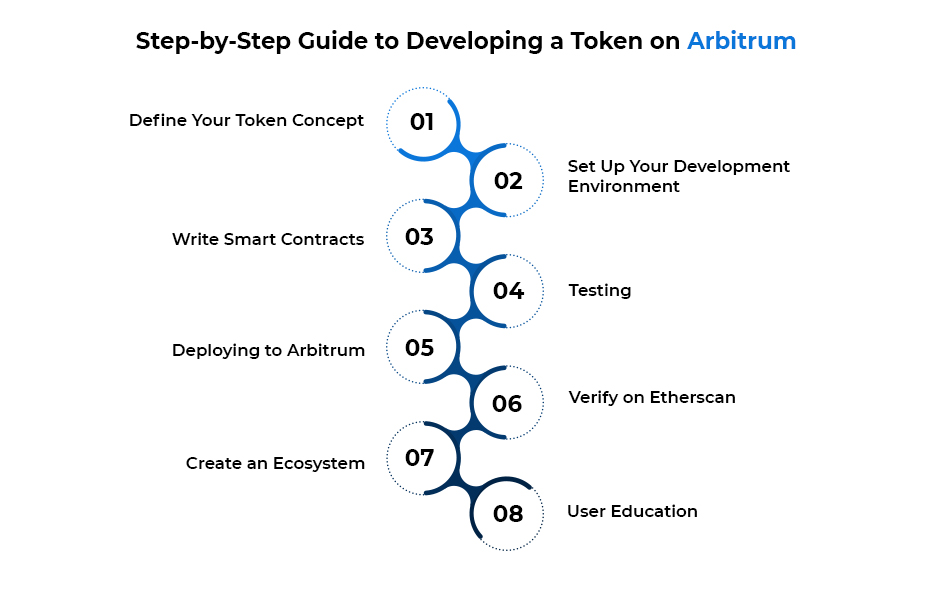
Step 1: Define Your Token Concept
Before going into technicalities, define the purpose of your token. Ask these questions to yourself before proceeding:
- What problem does your token solve?
- Is it going to be an NFT, a fungible token, or something else?
- What will be the total supply, and the distribution process?
Having clear answers to these questions will make it easier to discuss your requirements with crypto token development services and receive an accurate quote. These are the crucial aspects that enables a developer to shape your token’s ecosystem and align your project with your target audience.
Step 2: Set Up Your Development Environment
You need a solid development environment to build tokens on Arbitrum. This typically includes:
- Node.js and npm: To manage packages and libraries.
- Hardhat or Truffle: A framework for compiling and deploying smart contracts.
- Ganache: A local Ethereum blockchain to test your contracts.
In addition to this, you’ll need a wallet that is daily compatible with Arbitrum. You can opt for MetaMask or WalletConnect, to make transactions while continuing with the development process.
Step 3: Write Smart Contracts
Writing smart contracts is arguably the most critical step. These contracts govern your token’s functionality, including transfers, minting, and burning. While choosing the right token development company will end your worries about coding and deloyment, still, we will discuss some key functions that are typically included:
- mint: Allows the creation of new tokens.
- burn: Enables the destruction of tokens, reducing supply.
- transfer: Manages the movement of tokens between users.
- approve and transferFrom: Enables spending tokens on behalf of another user.
Implementing these features carefully can mitigate future issues and bugs, enhancing your token’s performance.
Step 4: Testing
Once the smart contracts are coded, conducting rigorous testing becomes utterly essential. Utilize tools that allow for unit tests by simulating various scenarios. The objective is to identify vulnerabilities or logical flaws in your contracts, ensuring they perform as intended without unexpected behavior or security risks.
Step 5: Deploying to Arbitrum
After satisfactory testing, the next step is deploying your token to the Arbitrum network. You can deploy directly to Arbitrum’s mainnet or testnet. Use your development framework (like Hardhat or Truffle) to handle deployment scripts effectively. However, it will better to let the crypto token development services handle this significant step, as it involves certain risks.
Step 6: Verify on Etherscan
Upon successful deployment, it’s advisable to verify your contract on Arbitrum’s Etherscan. This enhances transparency, allowing users to view your contract’s code and transactions. This step bolsters trust in your project and encourages more users to engage with your token.
Step 7: Create an Ecosystem
Deployment doesn’t mark the end of your work. It will be crucial to build a strong ecosystem around your token to ensure its success. It covers partnerships, integrations with existing DeFi platforms, provision of liquidity, and marketing to attract users. Engage with the community through diverse channels including social media and forums to ensure you are building a loyal user base.
Step 8: User Education
As a token creator, it will be imperative to educate your users on the functionalities of your token. Usually, this information is passed to the users through a whitepaper, and leveraging the expertise of a reliable token development company will enable you to compile the documentation, FAQs, and guides to guide the user in understanding how to buy, trade, and use the token. Transparency about possible risks and the project roadmap helps to build trust and engage the community.

Don’t Struggle- Consider Crypto Token Development Services
If you feel that the process of developing, testing, and launching a token on Arbitrum is too overwhelming, you can consider crypto token development services. Professional developers will help you throughout the lifecycle of token development, providing you with expertise in smart contract development, auditing, and deployment strategies.
Professional services can help you save time and resources by ensuring your token is done according to industry standards. They will also give insights into the regulatory compliance side and be able to assist with strategizing market entry for your project, giving you a competitive edge.
Wrapping it Up!
Developing a token on Arbitrum can be a very rewarding enterprise, provided you are armed with sufficient knowledge and resources. Assuming you define the purpose behind your token, follow guidelines, test it extensively, and build a community behind it, you can exponentially increase your chances of success in this endeavor. Moreover, crypto token development services would be able to provide experience and support in the difficult process of token development.
Ready to become the leading token creator on Arbitrum? Let Antier make your dream come true. Take this journey into the world of possibilities that this layer-2 scaling solution offers. Develop your tokens today!
